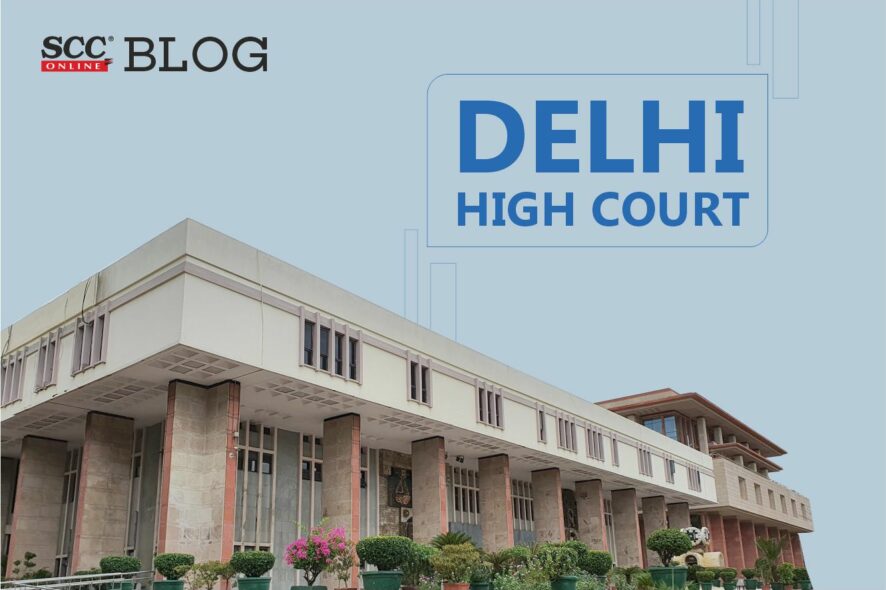Delhi High Court: In an appeal challenging the judgment passed by the Session Judge, convicting the appellant for offences punishable under the provision of Section 376(2)(f) of the Penal Code, 1860 IPC and Section 6 read with Section 5 or Section 3 of Protection of Children from Sexual Offences Act, 2012 (‘POCSO’), the division bench of Siddharth Mridul and Anup Jairam Bhambhani upheld the judgment and order on conviction by the Trial Court, and held the appellant guilty of the offences of rape and penetrative sexual assault upon the one-year old child.
The Court observed that the offences against minors, more particularly sexual assault are increasing alarmingly, and it is, therefore, necessary for the courts to imbibe the legislative wisdom, as the torment on the victim has the potential to corrode the poise and equanimity of any civilized society. Further it referred to the decision in Lillu v. State of Haryana, (2013) 14 SCC 643, wherein it was held that “rape degrades and humiliates the victim and where the victim is a helpless innocent child or a minor, it leaves behind a traumatic experience. A rapist not only causes physical injuries but leaves behind a scar on the most cherished position of a woman i.e., her dignity, honour, reputation and chastity”, and observed that it is the duty of the Courts to consider such specialized legislation in the circumstances to which they owe their origin to ensure coherence, and to avoid any unintended and undesirable consequences.
The Court has observed that contention that the testimonies of the parents are unreliable owing to the circumstance that the witnesses in question are the parents of the minor victim and further that the said testimony is uncorroborated is no longer res integra, and placed reliance on the decision in State of H.P. v. Gian Chand, (2001) 6 SCC 71, wherein it was observed that “the Court must first assess the trustworthy intention of the evidence adduced and available on record, and if it finds the evidence worthy of being relied on, then the testimony must be accepted and acted on, even though there may be other witnesses available who could potentially be examined but were not examined”
Further, it referred to the decision in Mohd. Rojali Ali v. State of Assam, (2019) 19 SCC 567, wherein it was held that “a ‘related witness’ cannot be said to be an ‘interested witness’ merely by virtue of being a relative of the victim and a witness may be called interested only when he or she derives some benefit from the result of a litigation, which in the context of a criminal case would mean that the witness has a direct or indirect interest in seeing the accused punished due to prior enmity or other reasons, and thus has a motive to falsely implicate the accused”, and observed that the victim’s parents cannot be characterised as interested witnesses simply because they are the parents of the victim; and nothing from the record or in the submissions of the appellant even remotely suggests that they had any motive in framing the appellant for the commission of such a heinous crime. Thus, the defence raised by the appellant that he has been falsely implicated in the case by victim’s parents is a mere after-thought, and their testimony is credible and inspires confidence, as they were witnesses to the commission of the offence being present at the relevant time.
Placing reliance on the ruling in State of U.P. v. M.K. Anthony, (1985) 1 SCC 505 and in State v. Saravanan, (2008) 17 SCC 587, wherein the Court held that “difference in some minor detail, which does not otherwise affect the core of the prosecution case, even if present, that itself would not prompt the court to reject the evidence on minor variations and discrepancies”, and observed that minor discrepancies on trivial matters, that do not affect the core of the prosecution’s case would not prompt the Court to reject the evidence in toto.
The Court referred to the decision in Wahid Khan v. State of M.P., (2010) 2 SCC 9, wherein it was held that “the only statement that can be made by the medical officer is to the effect whether there is evidence of recent sexual activity, and whether the rape has occurred or not is a legal conclusion, not a medical one”, thus, it observed that the absence of human semen in the smears collected from the vagina of the prosecutrix, in a case of rape, would result in an acquittal is well- settled. It was also observed that the Medico-Legal Report of the victim, confirms that her hymen was torn; further there was blood at the introitus, abrasion at mucosal tear; and furthermore, as per the Forensic Science Lab report, the appellant’s semen was found on the undergarments worn by the victim at the time of the commission of the offence. Thus, the Court upheld the conviction of appellant by the Trial Court.
[Bagender Manjhi v. State (Govt. of NCT) Delhi, 2022 SCC OnLine Del 3424, decided on 18.10.2022]
Advocates who appeared in this case:
Chetan Lokur, Advocate, for the Appellant;
Ashish Dutta, Additional Public Prosecutor, for the Respondent.






